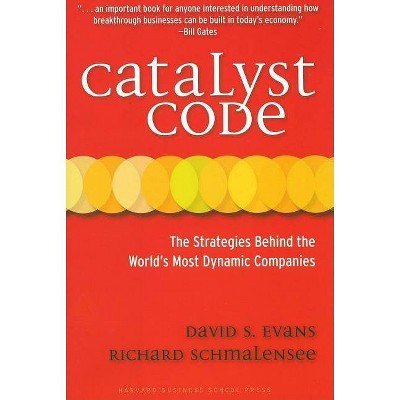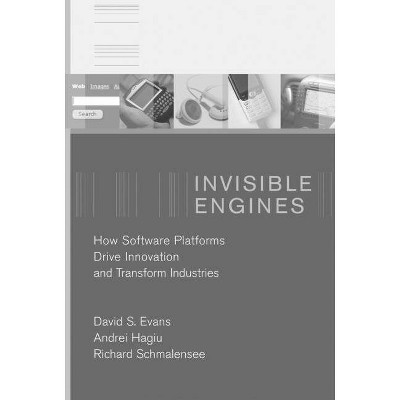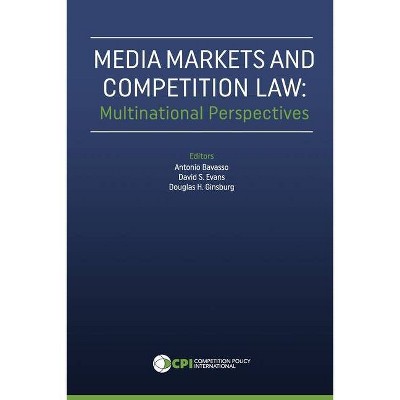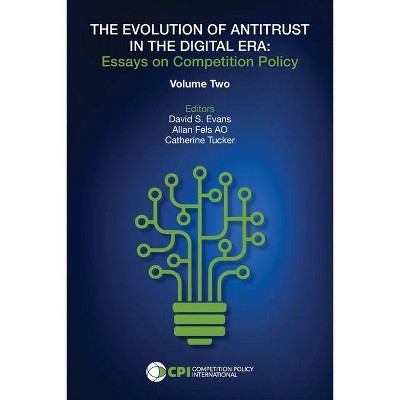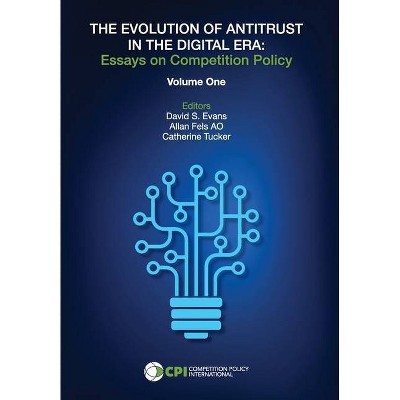Antitrust Analysis of Platform Markets - by David S Evans & Richard Schmalensee (Paperback)
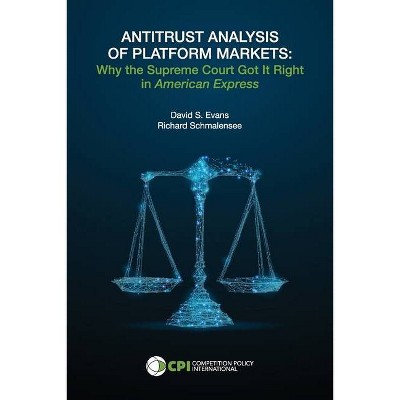
Similar Products
Products of same category from the store
AllProduct info
<p/><br></br><p><b> About the Book </b></p></br></br>This book compiles a set of pieces on the implications of the U.S. Supreme Court's ruling in Ohio et. al. v. American Express and the preceding litigation for the treatment of multisided platforms under U.S. antitrust law. The authors consider that the Supreme Court ruling provides valuable guidance for antitrust analysis in such markets.<p/><br></br><p><b> Book Synopsis </b></p></br></br><p>This book explores the implications of the U.S. Supreme Court's ruling in Ohio et al. v. American Express, and the preceding litigation, for the treatment of multisided platforms under U.S. antitrust law. It is based on a series of articles that the authors wrote (either jointly or individually), leading up to and in the aftermath of the Supreme Court's decision.</p><p>The authors consider that the Supreme Court ruling provides valuable guidance for antitrust analysis in such markets. This book emphasizes the importance for enforcers and the judiciary to take full account of the multisided nature of certain markets, not only in payment services, but throughout the economy (including other types of multisided platforms, which are particularly common in online digital markets).</p><p>Although Evans and Schmalensee agree with the Supreme Court's reasoning, this book nonetheless sets out criticisms of the Supreme Court's ruling. The authors address such criticisms, based on our (and other legal and economic practitioners' and academics') understanding of the modern economic theories on multisided markets. In particular, Schmalensee underline the need for decisionmakers to take into account any alleged anticompetitive harm and benefits to participants on both sides of a multisided platform, before coming to any conclusion that there has been antitrust injury as a result of any given conduct.</p><p>Of particular importance, and emphasized throughout this book, is the need to undertake a full rule of reason analysis of conduct in multisided markets, consistent with both long-standing antitrust precedent and modern economic theory. A proper assessment must take into account the multisided nature of certain markets in all steps of antitrust analysis, whether the issue at hand relates to alleged monopolization, coordinated behavior, or a merger. Given the prevalence of multisided platforms, similar allegations of antitrust harm are sure to arise time and again in the years to come, and there are many unanswered questions. </p><p>For convenience, as Appendices, the books also includes the text of the U.S. Supreme Court's ruling, an amicus brief filed jointly by 28 antitrust professors, an amicus brief filed jointly by 8 economists, and the brief filed by the U.S. on behalf of the petitioners.</p><p/><br></br><p><b> Review Quotes </b></p></br></br><br><p>"This is a very timely publication by two well-known authors who are masters of their craft. Their clear analysis of the complex antitrust issues raised by multisided platforms, and in particular their discussion of the U.S. Supreme Court decision in <em>American Express</em>, will be of great value to practitioners and judges alike." <strong>Sir Christopher Bellamy QC, </strong><strong>Chairman of the Global Competition Practice, Linklaters</strong></p><p>"David Evans and Richard Schmalensee have made a short but powerful contribution to the complex legal and economic issues that surround the operation of platform markets. Their strong defense of the Supreme Court's recent decision in <em>Ohio v. American Express</em> offers a powerful explanation of how these platform markets require sensitive treatment lest a powerful force for social innovation in payment markets be hobbled by an overzealous enforcement of the antitrust laws." <strong>Richard Epstein, </strong><strong>Professor of Law, New York University</strong></p><p>"Evans & Schmalensee provide an in-depth look at the foundations and implications of an important Supreme Court antitrust precedent. It is vital reading for anyone interested in how current antitrust law assesses the competitive implications of platforms, one of the hottest legal topics today." <strong>Maureen K. Ohlhausen, </strong><strong>Partner, Baker Botts</strong></p><p>"David Evans and Richard Schmalensee have shown the economics profession the importance of multisided platforms. In this book they bring their command of the subject to bear on the <em>AmEx</em> case, in which the Supreme Court's seminal decision copiously cited their analysis of platforms. Now Evans & Schmalensee persuasively frame their advice...that proper analysis should look at the whole picture - all sides - to evaluate these platforms, and better understand the factors that undergird the likelihood of platform success and failure." <strong>David J. Teece, </strong><strong>Professor, Haas School of Business, University of California, Berkeley</strong></p><p>"As primary contributors to our economic understanding of multisided markets, no two scholars are better situated to analyze the Supreme Court's decision in Ohio v. American Express and its implications for antitrust policy. Evans & Schmalansee deliver characteristically deep insight and careful analysis in explaining the economic and legal implications of the Supreme Court's decision. As digital markets become a more prominent feature of the regulatory landscape, 'Antitrust Analysis of Platform Markets: Why the Supreme Court Got It Right in American Express, ' is essential reading for antitrust practitioners, economists, regulators, and policymakers." Joshua D. Wright, University Professor of Law, George Mason University</p><p>"Evans & Schmalensee provide an in-depth look at the foundations and implications of an important Supreme Court antitrust precedent. It is vital reading for anyone interested in how current antitrust law assesses the competitive implications of platforms, one of the hottest legal topics today." Tad Lipsky, Director, GAI Competition Advocacy Program, George Mason University</p><br>
Price History
Price Archive shows prices from various stores, lets you see history and find the cheapest. There is no actual sale on the website. For all support, inquiry and suggestion messagescommunication@pricearchive.us
